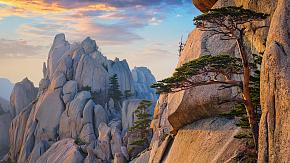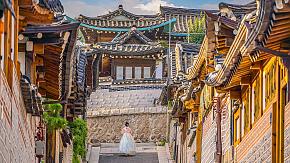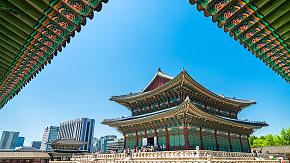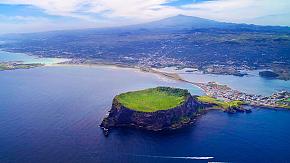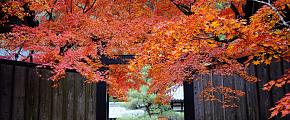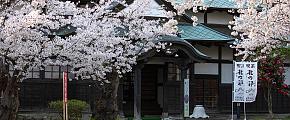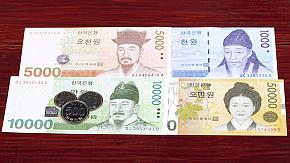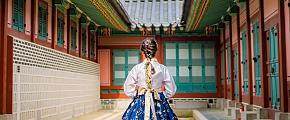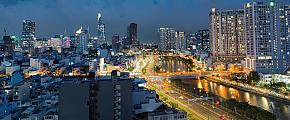Top 8 Natural Attractions to Visit in South Korea
South Korea is full of impressive views of fashion, modernization, cultural heritage, and natural beauty. Although it is always mentioned for its pop culture, South Korea is a hilly and mountainous country surrounded by the sea on three sides, with many charming natural places and sites. Here's our recommendation for the top eight natural attractions you must visit during your tour to South Korea.
Jeju Island
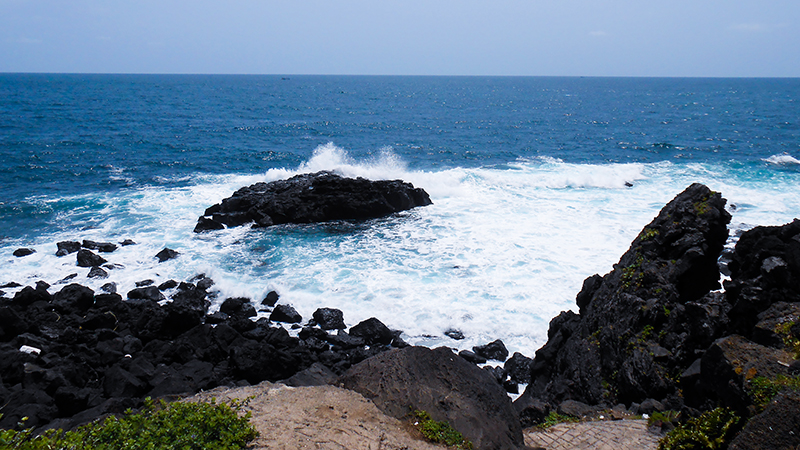 Jeju Island
Jeju Island
About 450 km (1 hour flight) south away from Seoul, Jeju is considered South Korea's largest island created by volcanic activity, consisting of 26 islets, 60 lava caves, offshore waterfalls, and lava tubes. Nicknamed "the Hawaii of Korea", Jeju Island has become a hotspot for the beautiful nature of South Korea, delicious seafood dishes, and cultural heritage.
Four distinct seasons bring Jeju Island distinctive views, it is an all-seasons destination from azalea blossoms in spring to dreamy snow scenes. When making a summer trail in forests, it would surprise you to bump into stunning waterfalls tucked away among the forests. You can partake in various festivals to immerse in its natural beauty, like the Cherry Blossom Festival and the Rape Flower Festival in April.
You can climb up to the top of Mount Hallasan, the highest mountain in Jeju, to get an overall view of the pretty coastline of Seogwipo as well as the Baengnokdam crater filled with clear blue water. Besides, you can't overlook Jusangjeolli Cliff, a collection of square and hexagonal peristyles formed by lava.
The bottomless volcanic cave Manjanggul Lava Tube is also attractive. It is about 13400 meters in extent, with fantastic stalagmites, peristyles, and stalactites, as well as the stunningly long Manjanggul Lava Tube.
Nami Island
Nami Island, located near Seoul, is one of South Korea's most beautiful natural attractions. The beauty of Nami Island welcomes an all-year-round visit. It is a desirable location for many tourists, especially couples who are looking for a honeymoon tour in South Korea.
Nami Island is covered with chestnut trees, white poplar trees, pine trees, and cherry trees. It is famous for its scenic paths lined with different kinds of trees in every season, thus used as the location for many Korean dramas. The must-walk spot on the island is Central Korean Pine Tree Lane, a picture-perfect path lined with thick pine trees leading to the center of the island.
Every season on Nami Island will offer you amazingly distinctive scenery. In spring, the breathtaking cherry blossoms come out between early April and mid-April. The summer brings thick, green pine trees and redwoods, while the autumn paints the island colorful with fallen leaves. And you can go on a riverside walk to see poetic reed beds. Winter's snow will show a particularly magnificent picture of the island.
Upo Wetlands
The Upo Wetlands lie in the southern part of Changnyeong, including the main wetland of 2.3 square kilometers inhabited by a large variety of wildlife, making it an ideal place to capture South Korea's natural scenery and birds.
The wet fog creates the fantastic misty scenery on the wetlands. It provides a fascinating and mysterious sunrise and sunset for arrivals. The Upo Wetlands also attract migratory birds like swans, wild geese, mallards, and so on during the winter. It will make a strong impression on you to observe a large flock of migratory birds flying across wetlands.
At night from August to September, you may be attracted by the rare sight of a swarm of fireflies giving off flashes of light. If you're lucky enough, you are likely to have a meteor shower. Upo Wetlands is an ideal destination for tranquility and leisure.
Gosu Cave
It is a limestone cave in North Chungcheong, South Korea. If you are an adventurous traveler, you must put Gosu Cave on your list. However, Gosu Cave is far too large to visit in a single day. If you're really interested in this "underground palace," it is worth your two-day exploration.
The cave spans 5.4 kilometers and was formed over 450 million years ago. The highlight of Gosu Cave is its various formations, such as the cave pearls, brimstone pools, cave corals, stalactites, and stalagmites, all of which are naturally shaped.
Gosu Cave is equipped with stairs to most parts of it. You must be impressed by the stairs, intricately lined with limestone walls. When entering the cave for the first time, you may be afraid of the darkness, but then you'll be amazed at its beauty and mysteries. The cave is so significantly old that the local government takes good care of it so you can access the most unspoiled cave scenery.
Cheonjiyeon Falls
Located in Seogwipo City on Jeju Island, Cheonjiyeon Falls is one of the most appealing natural attractions in South Korea. Cheonjiyeon means "sky connected with the land", and you can see the waterfall lying on a towering cliff of lava.
The three-level waterfalls stand 22 meters high and 12 meters wide. The first-level falls pour down into a pool as deep as 21 meters. Then the water of the second- and third-level falls straight down to the sea.
Cheonjiyeon Falls is hidden among a vast expanse of lush forests. Summer weather causes waterfalls to flow faster and create more currents. The picturesque view surely catches your eye and meets your needs for curiosity and calm. You can follow the flowery walking trail to Cheonjiyeon Falls from Seogwipo Port. The invitingly clear waters and pristine forests will calm your five senses.
Even in winter, the exposed lava and a thin layer of waterfalls make for a beautiful scene as the background of the photo. Cheonjiyeon Falls is taken such good care of that you will be intrigued by its virgin scenery.
Juknokwon
Juknokwon is located in Damyang, a city rich in cultural heritage. It is a bamboo forest with spectacular skyward bamboo scenes, for which the locals hold an annual Bamboo Festival in early May.
Juknokwon offers wonderful nature charms, with towering trees covering a distance of 2400 meters. The Metasequoia Trail is a must-hike path in the forest. It is lined with bamboo stretching up to the heavens, which is used as a perfect location to take a wonderful photo.
It is also an ideal location for walking and camping. It is particularly attractive for the pleasant lighting along the path at night. Besides, Damyang is known for its bamboo handiwork, and you can buy some of it at exhibitions held on May 10th. In brief, Juknokwon is a worthy addition when you travel around South Korea.
Seoraksan National Park
Seoraksan National Park is based on Seoraksan Mountain, in the northeast region of South Korea. It is a natural attraction that features iconic mountainous scenery in South Korea. Every traveler who catches a first glimpse of Seoraksan Mountain will be awed by its magnificence and gorgeousness.
Standing 1708 meters above sea level, Seoraksan Mountain is endowed with a fascinating variety of natural sights, from its strange rocks and pine trees to waterfalls, cliffs, and clear mountain streams. There are various hiking trails that can be reached by walking or trekking. A visit along any of the routes is a memorable experience for appreciating the mountain's beauty and cultural background.
During the autumn season in South Korea, the scenery of the park is most attractive to natural lovers, where the trees are ablaze with vibrant and colorful shades of red, orange, and green. You can behold the great sight while taking the cable car to the mountain top. If that's not enough, you can also walk around the valley, where it's the best spot to admire stunningly gorgeous maple leaves against waterfalls and a clear stream.
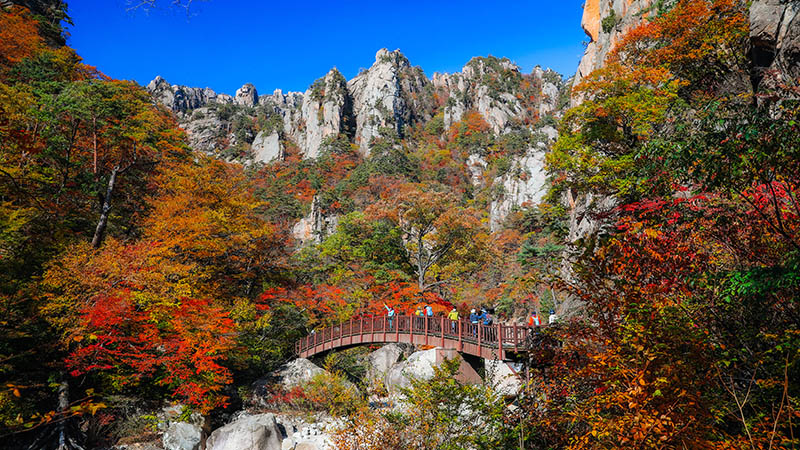 Seoraksan National Park
Seoraksan National Park
Namsan Park
Namsan Park is one of the first-time travel places in Seoul, symbolizing a perfect fusion of beautiful nature and artificial transformation. Namsan Park rises 265 meters above sea level and provides a natural habitat for a wide range of wildlife.
It is best known for its walking trails lined with spectacularly beautiful maple leaves. You can get close to local wildlife like squirrels while going around the park. Moreover, you can try the Namsan Cable Car to the summit, and you will have a wonderful view of the city.
When you get to the top, you'll see the Namsan Seoul Tower, which is 236 meters high. The tower is decorated with a huge yellow letter "N," standing for "new" and "nature." The light show of the tower at night is of great interest to visitors.
You can enjoy a glorious light show from 7 p.m. to 12 p.m., with the color of the tower changing from hour to hour. Don't miss the annual cherry blossom festival in April when you can walk along the cherry blossom path to see the grandest sight in full bloom.
Capture the Nature of South Korea With Odynovo
The above-mentioned beautiful attractions in South Korea would appeal to you. If you're planning to explore South Korea's unique natural charm with your own eyes, please don't hesitate to contact us, just simply tell us your interests and needs at [email protected] , and one of our travel experts will create a tailor-made itinerary for you within 24hrs.
Related Posts You May Like
What Our Clients Say
Explore the latest verified reviews of Odynovo's travel services on Tripadvisor, Google, Trustpilot, Product Review and more trusted platforms.

